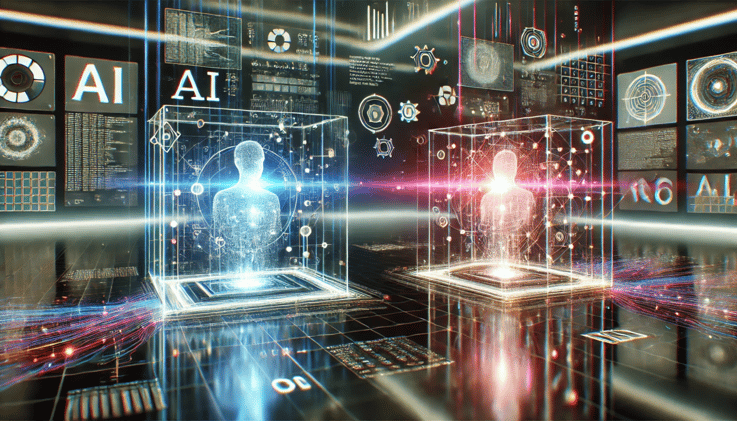Introduction
Meta has introduced a new AI model that is capable of evaluating the work of other AI models, potentially reducing the need for human involvement in AI development. This model, known as the ‘Self-Taught Evaluator,’ was unveiled alongside other AI tools from Meta’s research division.
Background
The Self-Taught Evaluator is part of a broader effort by Meta to improve the accuracy and efficiency of AI systems. In August, researchers at Meta explained how the model uses a ‘chain of thought’ technique to enhance the accuracy of AI responses. This approach, similar to the method used in OpenAI’s latest o1 models, breaks down complex tasks into smaller logical steps.
The Self-Taught Evaluator
What sets the Self-Taught Evaluator apart is its ability to rely solely on AI-generated data for training. By eliminating the need for human-labeled datasets during this phase, Meta’s model offers a glimpse into a future where AI can independently assess its work and learn from mistakes.
How it Works
The model generates multiple outputs from AI models and then uses another AI system to evaluate and enhance the responses. This method is particularly useful in technical areas like coding, science, and math.
Key Features
- The Self-Taught Evaluator performs better than models like GPT-4, Llama-3.1, and Gemini-Pro in terms of accuracy and efficiency.
- It is 7 to 10 times faster than the GPT-4 evaluator while maintaining a high human agreement rate.
Implications for AI Development
Meta’s release reflects growing interest in autonomous AI systems. By removing human feedback from training, these models could streamline AI development and reduce the reliance on Reinforcement Learning from Human Feedback (RLHF), a process that involves specialized human annotators.
Autonomous AI: The Future of Efficiency
Many researchers believe that self-improving models like the Self-Taught Evaluator could perform tasks more efficiently than humans. This could lead to digital assistants capable of carrying out complex tasks without human intervention.
Potential Benefits
- Reduced reliance on RLHF, a process that can be costly, time-consuming, and prone to human error.
- Improved efficiency in AI development, allowing for faster training and deployment of models.
- Potential for autonomous AI systems that surpass human capabilities.
Meta vs. Competitors in AI Research
Meta is not the only company working on self-improving AI models. Competitors like Google and Anthropic have also explored Reinforcement Learning from AI Feedback (RLAIF). However, unlike Meta, these companies are generally more hesitant to release their models to the public.
The Future of AI: Self-Improvement and Efficiency
Experts believe that Meta’s Self-Taught Evaluator could revolutionize the AI development process by reducing the need for human intervention in data labeling and verification. With the potential to improve efficiency and reduce costs, self-improving models may lead to autonomous AI systems that surpass human capabilities.
Conclusion
By embracing AI-generated data and self-evaluation methods, Meta’s new models offer a promising glimpse into the future of AI—a future where machines can learn from their mistakes and perform more accurately than ever before.




